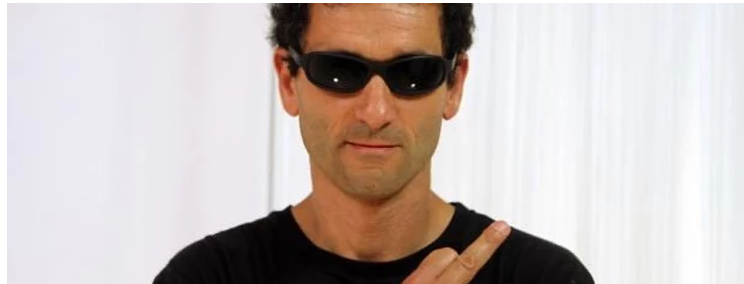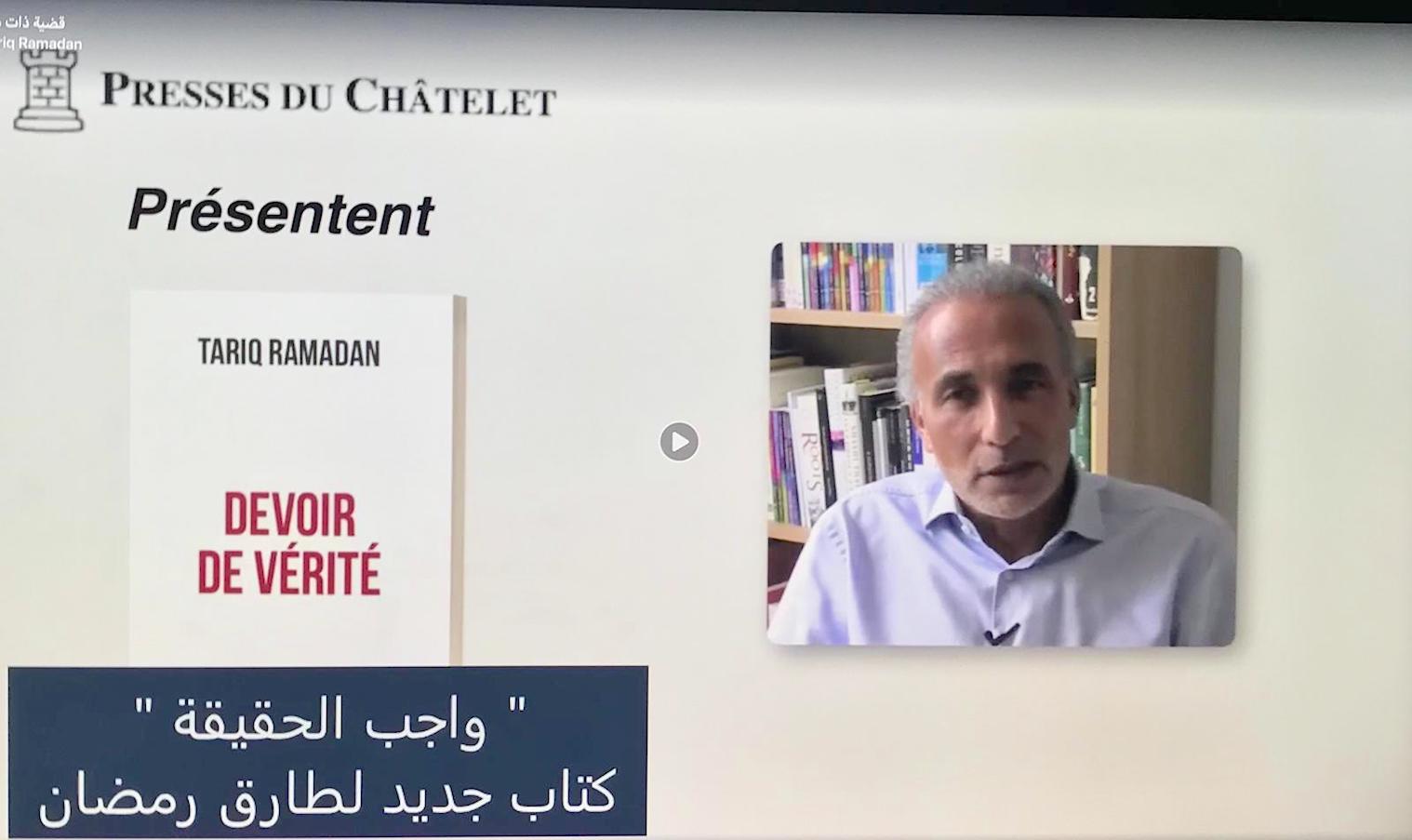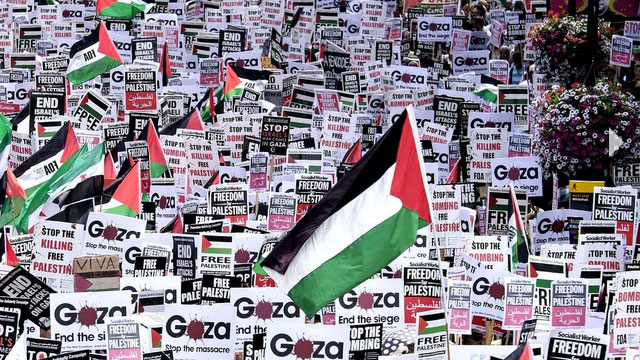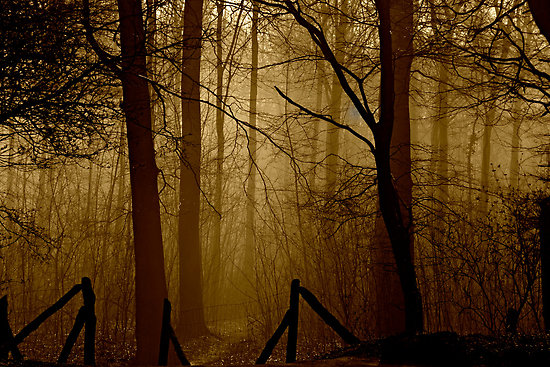New York Times
Citing the case of a prominent Muslim scholar who has been barred from the United States, the American Civil Liberties Union filed a federal lawsuit yesterday seeking to strike down a clause of the USA Patriot Act that bars foreigners who endorse terrorism from entering to this country.
The suit was filed in Federal District Court in Manhattan on behalf of the scholar, Tariq Ramadan, and three national organizations of academics or writers who have invited him to speak to their members. The groups, including the American Academy of Religion, the leading American organization of scholars of religion, say Mr. Ramadan has never expressed support for terrorism. They also argue that the Patriot Act clause has been applied to stifle academic debate in the United States. Mr. Ramadan, a Swiss citizen, has been denied a United States visa since July 2004, when he was on the verge of moving with his family to Indiana to take up a tenured professor’s position at the Joan B. Kroc Institute for International Peace Studies at the University of Notre Dame.
In a telephone interview from Oxford University in England, where he is currently a visiting professor, Mr. Ramadan said he had never had an explanation why his visa was revoked, after he had been approved to teach at Notre Dame and had been a frequent traveler to the United States for many years.
« It’s clear there is nothing in my record supporting terrorism, » Mr. Ramadan said.
Speaking to reporters in August 2004, a spokesman for the Department of Homeland Security, Russ Knocke, cited the Patriot Act clause as the reason that Mr. Ramadan’s visa was canceled. The clause, adopted when the act was passed in 2001 and amended last May, bars foreigners who « endorse or espouse terrorist activity or persuade others » to support terrorism.
The author of some 20 books on Islamic theology and the place of Muslims in the Western world, Mr. Ramadan, 43, is an outspoken critic of the Bush administration’s policies in the Middle East. He has also rejected Muslim terrorism, calling it « anti-Islam. » Last August, he was invited by Prime Minister Tony Blair to participate in a task force to counter extremism after the London bombings in July.
The A.C.L.U., joined by the New York Civil Liberties Union, brought the suit against Michael Chertoff, the homeland security secretary, and Secretary of State Condoleezza Rice, asserting that the Patriot Act clause is unconstitutional and that the ban on Mr. Ramadan violates the First Amendment rights of American thinkers who want to meet with him. The American Association of University Professors and the PEN American Center are also plaintiffs.
After Notre Dame applied a second time for a visa for Mr. Ramadan and he waited for five months with no response, Mr. Ramadan resigned in December 2004 from his position there. R. Scott Appleby, the director of the Kroc center, said the government never gave an explanation to the university. Notre Dame saw Mr. Ramadan as a theologian who could help build ties between Middle Eastern Muslims and the West, Mr. Appleby said.
Mr. Ramadan filed a new visa application on Sept. 16, after receiving about 40 invitations for speaking engagements in the United States over the past year. Interviewed in December in Bern, Switzerland, by agents of the Homeland Security and State Departments, Mr. Ramadan said he was mainly questioned about his views of the war in Iraq.
« I told them what I have said many times publicly, that I think the war was a mistake and illegal, » he said. « Even the United Nations has said that. I think the resistance is legitimate but the means they are using are not. »
A State Department spokeswoman, Janelle Hironimus, confirmed Mr. Ramadan’s 2005 visa application but said the department did not comment on pending visa or legal matters.
Mr. Knocke of the Department of Homeland Security also declined comment on the suit or Mr. Ramadan’s status. But he noted that the criteria for revoking visas included « public safety and national security risks, » among others.
« We have a strong commitment and clear responsibility to restore integrity to our immigration system, which includes preventing people who might present risks from entering the country, » Mr. Knocke said.
The controversy about Mr. Ramadan’s ideas arises in part because he is the grandson of Hasan al-Banna, a founder in 1928 of the Muslim Brotherhood, an Egyptian group that has turned to violent attacks in recent decades. Some critics say that he speaks with two voices, espousing moderate views in Europe but embracing more militant ideas when he addresses Muslims in the Arabic world.
Barbara DeConcini, the executive director of the American Academy of Religion, described Mr. Ramadan as « one of the most respected scholars of Islam working today. »
He was invited to give a keynote address at the group’s annual meeting in November, Ms. DeConcini said, but without a visa he was limited to giving a lecture to a small audience by videoconference, which she called a poor substitute for his participation in the group’s discussions. He has been invited to address the next annual meeting, she said.
While the government has the authority to exclude terrorists, Ms. DeConcini said, the Patriot Act clause « is being used much more broadly to censor and manipulate academic and political debate. »
Mr. Ramadan said the ban had damaged him professionally, and the disruption had been jarring to his wife and children. He said he has not been offered another tenured university position.
Source : NYTimes.com











Salam,
Il devient de plus en plus clair que l’administration US invente toutes sortes de prétextes pour éviter des débats concernant la situation économique désastreuse des USA et l’amplification croissante de sentiments hostiles à la politique des USA.
Le prétexte de la lutte contre les « mouvements » islamiques et(ou) islamistes (avancé pour empêcher Mr Ramadan de rejoindre l’université Notre Dame et l’empêcher de participer à des débats où « les dés ne sont pas « »PIPÉS » » comme l’exige D. PIPES ) veut cacher le Talon d’Achille (Achille , dans le cas des USA, est un colosse aux pieds d’argile , qui bientôt ne pouura se tenir debout…):
L’extrême fragilité du Dollar qui a été désindéxé de l’étalon or en 1973-74 avec la création du Pétrodollar ce qui permet aux USA de contôler le prix du pétrole, l’économie des pays producteurs de pétrole, et d’imprimer autant de « billets verts » qu’elle désire indépendemment de la masse des réserves fédérales en or (qui n’est plus considéré comme un étalon pour la monnaie américaine)…
La Prochiane victime: L’iran
Le prétexte: menace nucléaire???
Vraie raison:
–On sauve l’Iran ou le dollar ??
[http://bellaciao.org/fr/article.php3?id_article=22642->http://bellaciao.org/fr/article.php3?id_article=22642]
–La proposition d’une bourse iranienne du pétrole, par Krassimir Petrov, Ph.D – Gold-Eagle.
[http://www.legrandsoir.info/article.php3?id_article=3214->http://www.legrandsoir.info/article.php3?id_article=3214]
traduction ! traduction !!!!!
Trdauction des deux premiers paragraphes:
Citant le cas d’un éminent intellectuel musulman qui a été interdit d’entrée des Etats-Unis, l’Union Américaine pour les Libertés civiles a déposé une plainte fédérale hier visant à faire annuler une clause du Patriot Act US interdisant l’entrée sur notre territoire d’étrangers soutenant le terrorisme.
La plainte a été déposée auprès de la cour du district fédéral à Manhattan au nom de l’intellectuel Tariq Ramadan et de trois organisations d’universitaires ou d’écrivains qui l’avaient invité pour parler à leurs membres. Ces groupes, comprenant l’Académie Américaine des Religions et l’organisation Américaine des enseignants de religion, disent que Monsieur Ramadan n’a jamais exprimé de soutien au terrorisme. Ils font aussi valoir que la clause du Patriot Act a été mise en uvre pour étouffer le débat universitaire aux Etats-Unis.
Mr Ramadan, citoyen suisse, s’est vu refuser un visa depuis Juillet 2004, alors qu’il était sur le point de se rendre en Indiana avec sa famille pour occuper une chaire de professeur à l’institut d’études internationales pour la paix (dit institut) Joan B. Kroc à l’Université Notre-Dame.
….
C’est une excellente nouvelle! Cette mobilisation en faveur de T. Ramadan montre des signes de bonne santé démocratique dans la société civile américaine! On aimerait voir de tels soutiens dans notre pays!
F
GP : Qu’est-ce qui vous donne de l’espoir ?
NC : Ce qui me donne de l’espoir c’est l’opinion publique. L’ opinion publique aux Etats-Unis fait l’objet d’études méticuleuses, nous en savons beaucoup. On en parle rarement, mais nous la connaissons. Et vous savez, je suis plutôt en phase avec l’opinion publique sur la plupart des sujets. Sur certains, je ne le suis pas, sur le contrôle des armes à feu, ou sur le créationnisme ou des sujets comme ça. Mais sur la plupart des sujets importants, ceux que nous avons abordé, je suis dans le camp des critiques, mais plutôt en phase avec l’opinion publique. Je pense que c’est un signe très encourageant. Je pense que les Etats-Unis seraient un paradis pour un organisateur.
GP : quel genre d’organisation devrait être entreprise pour changer la politique ?
NC : Il y a de quoi procéder à un changement démocratique. Prenez ce qui s’est passé en Bolivie il y a quelques jours. Comment un dirigeant indigène de gauche a-t-il été élu ? Etait-ce en se présentant devant les électeurs une fois tous les quatre ans pour leur dire « votez pour moi » ? Non. C’est parce qu’il existe des organisations populaires de masse qui travaillent sans cesse sur tous les fronts, de la lutte contre les privatisations de l’eau jusqu’aux questions locales, et ce sont des organisations à démocratie participative. Ca c’est la démocratie. Nous en sommes loin. Voilà quelque chose qui serait à organiser.
GP :Geov Parrish is a Seattle-based columnist and reporter for Seattle Weekly
NC : Noam Chomsky, professeur au MIT, est l’un des plus grands intellectuels au monde critique de la politique étrangère des Etats-Unis. ([http://www.chomsky.info/->http://www.chomsky.info/])
Source : [www.geostrategie.com->http://www.geostrategie.com/cogit_content/verbatim/Ilnyapasdeguerrecontrelete.shtml]
salam,
un texte intéressant qui montre bien que tous les médias aux Etats-Unis ne soutiennent pas forcément la politique de Bush.Il éxiste une presse critique et objéctive dans ce pays,c’est aussi une façon de sortir de cette logique manichéenne « islamique » qui veut que tout ce qui est produit par les Etats-Unis est fonciérement mauvais.
Wasalam
Bonsoir Monsieur Ramadan,
Inutile de chercher l’exotisme pour constater des manquements aux droits d’expression.
Ces violations non pas seulement lieu dans les pays lointains ou totalitaires, elles sont aussi monnaie courante en France un Etat dit démocratique, très enclins à critiquer la plupart de ces pays pour leur supposée absence de droit fondamentaux, établissant ainsi un fort contraste avec eux- même qui sont si vertueux.
Le respect de la liberté doit inclure aussi les sentiments et la volonté d’une personne de ne pas exprimer sa liberté sur commande.
Elle est un droit fondamental inscrit non seulement dans les textes de base constitutionnels, mais essentiellement dans la conscience de l’être humain. Sa limitation ou suppression dans des cas spécifiques doit avoir une motivation sur base d’un intérêt fondamental pour les justifier.
Les raison à la base de cet intérêt fondamental, s’appellent parfois «raison d’etat » et peut donc varier selon la volonté de ceux ou celle qui représentent les pouvoirs publics et qui ont, en ligne de principes, la responsabilité de ne pas trahir la valeur profonde de cette liberté.
Yasmina